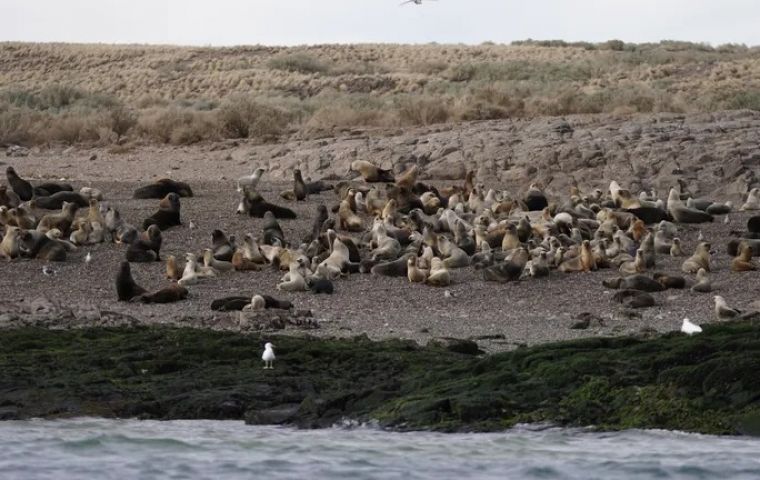MercoPress. South Atlantic News Agency
Argentine Patagonia beaches closed due to sea lions dead with bird flu
 Viedma Mayor Pedro Pesatti also asked the provincial Government of Río Negro for help
Viedma Mayor Pedro Pesatti also asked the provincial Government of Río Negro for help Authorities in the Argentine province of Río Negro Thursday closed access to beaches on the Atlantic Ocean shore following the appearance of dead sea lions, it was reported.
The municipality of Viedma, the province's capital, decreed the closure for 14 days of vehicular access to the beaches between Balneario el Cóndor and the Punta Bermeja natural protected area as a precautionary measure, due to the discovery of more than a dozen sea lions dead or with symptoms of avian influenza.
Viedma Mayor Pedro Pesatti also asked for the provincial government's assistance “to reduce the circulation of people and domestic animals on the Atlantic Coast belonging to the Municipal District of Viedma.”
“And that security fences be placed to restrict the passage and warning notices at the accesses to the indicated beaches,” he added in connection with the numerous sea lions with symptoms compatible with avian flu in the Punta Bermeja area.
Earlier this week, Argentina's National Agrifood Health and Quality Service (Senasa) confirmed three more cases of avian influenza in sea lions in Claromecó and San Blas, in the province of Buenos Aires, and in San Antonio Este, Río Negro. Other positive cases have been detected in Río Grande, Tierra del Fuego; Antarctica; in Necochea-Quequén, Buenos Aires; in Punta Loyola, Santa Cruz; in Mar del Plata, Buenos Aires; and in Puerto Pirámides, Chubut.
“There are sick animals, dead or dying. We have counted between 30 and 50 dead animals and many more sick,” said Punta Bermeja Natural Reserve Ranger Juan Isidro, who guards a colony of about 7,000 animals.
Highly pathogenic avian influenza (HPAI) is a disease with a major impact on poultry production, affecting both domestic birds such as chickens, ducks, turkeys, and geese, and wild birds. It can also spread to other animals and even humans. Since the end of 2021, a wave of avian influenza has spread worldwide.
Senasa insisted on its recommendations not to handle dead animals or animals with suspicious symptoms and recalled the importance of reporting high mortality in susceptible species if nervous, digestive, and/or respiratory signs are observed in wild birds or commercial or backyard domestic birds. People were also advised not to visit poultry farms or wildlife areas after contact with dead or symptomatic animals.
Last Saturday, the South breakwater in the city of Mar del Plata (province of Buenos Aires) was also closed after Senasa confirmed two cases of the Highly Pathogenic Avian Influenza (HPAI) H5 in sea lions in the area.




Top Comments
Disclaimer & comment rulesCommenting for this story is now closed.
If you have a Facebook account, become a fan and comment on our Facebook Page!